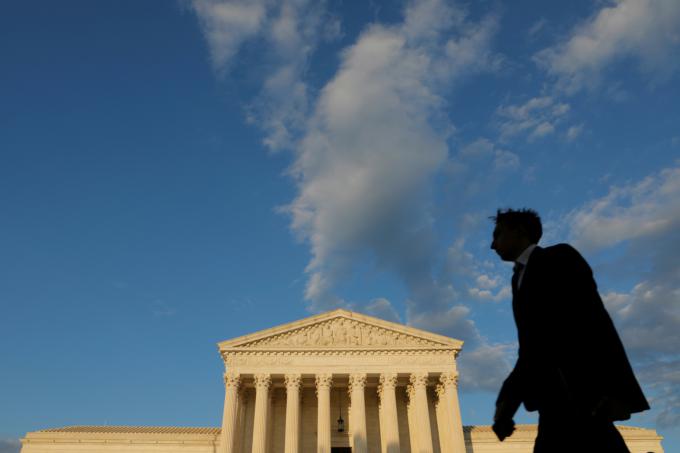
Culture
To be taken more seriously (because of its source) was the reaction from the White House, where press secretary Jen Psaki said President Biden remains "committed to codifying Roe" -- enacting that notorious ruling as federal law, something Biden said he'd do during the presidential campaign.

Shaw
The Supreme Court's announcement that it will consider an abortion case from Mississippi next fall touched off a predictable outpouring of frenzied criticism from pro-choice sources worried lest their cherished 'right' to abortion be in jeopardy. No small part of it was what might politely be called exaggeration or, not so politely, baloney.
As, for example, this nonsense from a Los Angeles Times editorial: "If the court lets states decide when a woman's rights take a back seat to those of her fetus, that will all but obliterate Roe v. Wade."
The obliteration of the Supreme Court's decision legalizing abortion is unquestionably desirable, but Dobbs v. Jackson Women's Health Organization isn't going to do it. If the court upholds the Mississippi law at issue here, it will merely be affirming the right of states to adopt moderate restrictions on the practice. Some will (or already have), others won't. The culture war will continue.
Even more fanciful was a claim by two law school professors to whom the Washington Post gave pride of place on its Op Ed page the day after the Supreme Court's May 17 announcement. A ruling upholding the state law, they wrote, would mean the end of women's "constitutional equality."
That will indeed come as a surprise to the many highly intelligent, articulate women with leadership roles in the prolife movement.
To be taken more seriously (because of its source) was the reaction from the White House, where press secretary Jen Psaki said President Biden remains "committed to codifying Roe" -- enacting that notorious ruling as federal law, something Biden said he'd do during the presidential campaign.
So what is the Mississippi law at the center of all this huffing and puffing really about?
Enacted by the state legislature in 2018, the Gestational Age Act bans all abortions after 15 weeks of pregnancy except in cases of medical emergency or severe fetal abnormality. A federal district court and the Fifth U.S. Circuit Court of Appeals cited Roe and other abortion cases in overturning the statute.
The Supreme Court, agreeing last month to hear Dobbs, said it would consider this single question: "Whether all pre-viability prohibitions on elective abortion are unconstitutional." Viability -- the point at which an infant can live outside the womb -- comes at about 24 weeks of pregnancy, although some children even younger than that have survived.
This truly is an important question, and a "no" answer by the Supreme Court -- all pre-viability prohibitions are not necessarily unconstitutional -- would save many lives. But that would not compel other states to adopt such laws, and the unhappy fact is that big, liberal states like California and New York would persist in their permissive policy regarding killing the unborn.
The Supreme Court will hear Dobbs argued next October or November, with a decision likely in the late spring or early summer of 2022.
Before then, we shall hear a great deal from the pro-abortion side about precedent. Where abortion is concerned, the crucial precedents are two Supreme Court decisions -- Roe v. Wade (1973) and Planned Parenthood v. Casey (1972).
As to Roe, even supporters of abortion like late Supreme Court Justice Ruth Bader Ginsburg have acknowledged that it was an exceptionally poor specimen of judge craft -- as well as an egregious example of legislating from the bench. As to Casey, the result there rested on an opinion by three justices--Kennedy, O'Connor, Souter -- grounded in their airy musings about the meaning of life.
Bad precedents need replacing by good ones. Here's hoping Dobbs accomplishes that.
- Russell Shaw is the author of more than twenty books. He is a consultor of the Pontifical Council for Social Communications and served as communications director for the U.S. Bishops.
Recent articles in the Culture & Events section
-
What is truth?Michael Reardon
-
The 75th anniversary of St. Ignatius of Loyola Church, Chestnut HillThomas Lester
-
The most important prayer you already knowLaura Kelly Fanucci
-
Two years after DobbsRussell Shaw
-
Scripture Reflection for July 21, 2024, Sixteenth Sunday in Ordinary TimeDeacon Greg Kandra


















